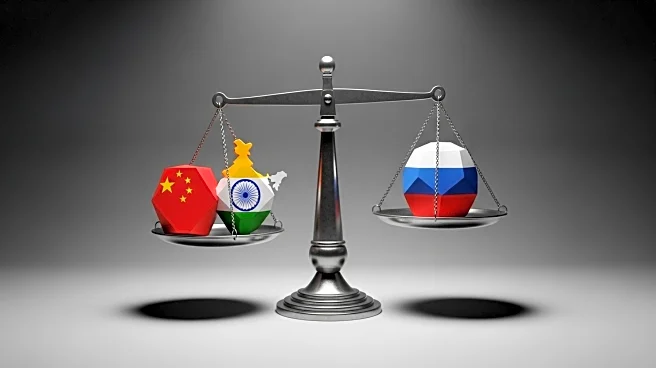What's Happening?
President Trump has called on the European Union to impose tariffs of up to 100% on China and India as part of efforts to pressure Russian President Vladimir Putin to end the war in Ukraine. The proposal was made during a meeting between US and EU officials discussing options to increase economic pressure on Russia. The call for tariffs comes amid intensified Russian strikes on Ukraine and ongoing attempts by Trump to broker a peace deal between Moscow and Kyiv. The US has already imposed a 50% tariff on goods from India, with a penalty for its transactions with Russia. The EU's potential tariff imposition would mark a shift from isolating Russia through sanctions to using trade levies.
Why It's Important?
The proposed tariffs on China and India could significantly impact global trade dynamics, particularly affecting industries reliant on imports from these countries. The move aims to weaken Russia's economic position by targeting major buyers of Russian oil, which supports the Russian economy. If implemented, the tariffs could lead to increased tensions between the US, EU, China, and India, potentially affecting diplomatic relations and economic partnerships. The situation highlights the complexities of international trade policies and their role in geopolitical strategies.
What's Next?
The EU's decision on whether to impose the tariffs will be crucial in determining the next steps in the economic pressure campaign against Russia. The US and India are continuing negotiations to address trade barriers, with President Trump planning to speak with Indian Prime Minister Narendra Modi. The outcome of these discussions could influence the broader trade strategy and diplomatic relations between the involved countries.










